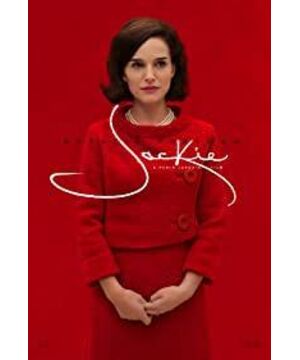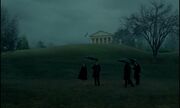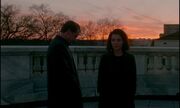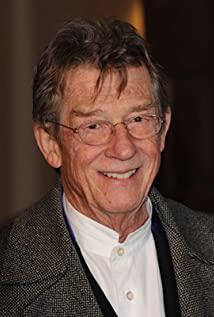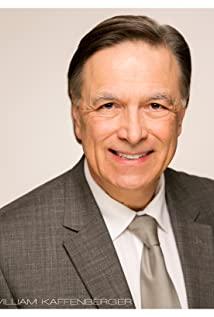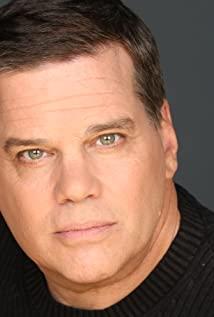Because it describes an extreme, narrow, and tragic situation in time, and because its images contain a kind of crushing intimacy, it is actually difficult for us to see Jackie's "full picture". The film just wants to tell about a black hole in Jackie’s life, showing the dense and free emotions of this woman in an emotional vortex, and then expressing some general themes about human emotions and special political themes (how to protect the legacy of the deceased and the United States The making of political myths). It’s not really a movie about Jackie, it’s about Jackie’s memory, Jackie’s sorrow, Jackie’s guilt, Jackie’s beliefs, Jackie wants to write his fictional history into written historical records Attempt. The tragic tone and funeral atmosphere of Jackie's entire movie are reminiscent of "Shouts and Whispers", the same indoor psychodrama full of close-ups, and the same about death and funeral. Like some other Bergman films, the characters are alienated from each other, as well as for the audience. The closeness of close-ups creates a kind of separation. Their extreme emotions often have abstract and symbolic meanings, revealing deep layers. Or divided self. When I watched Jackie, I also felt a strange alienation from Jackie, not because the movie did not let us experience the great joy and great sadness brought about by the twists and turns of life together like a general biographical movie, but I couldn’t empathize with this. word. If the estrangement from Bergman’s characters is due to their extreme emotional madness and irrationality under the close-up, then Jackie’s estrangement from me comes from her suffering beyond the scope of my experience, so my view Shadow emotion is a process of gradual accumulation, not only gradually adapting to Jackie's distinctive manners, but also gradually integrating into her painful and tangled psychological world.
I think this is the hardest female role of the year. Natalie Portman is playing three versions of the same role. Jackie on the White House trip in 1962 (a stunning parody, even if the accent is exaggerated), represents With a vulgar public impression; Jackie who stubbornly arranged a funeral in grief and confusion after her husband was stabbed; Jackie who was extremely controlling and tried to fictional history in the interview. In the second version, she showed such a multi-faceted personality, fragile, aggressive, vanity, proud, and irritable. . . Perhaps all these emotions stem from the post-traumatic stress disorder suffered by a woman after a terrible event, and she is under tremendous pressure to reshape her husband’s political legacy, so she exhibits an over-sensitive arc of reflex. Beyond all of this, she is just playing two kinds of Jackie, the real and the outward acting. But this kind of false acting personality is so deeply imprinted in her life, especially during this distressing day, she still has to pretend to have a calm and determined face, as the first lady to fear the tragedy of the whole country A desperate gift for the bewildered people. She also needs to play the role of mother properly. This self is so divided that she can no longer distinguish between reality and performance (I lost tracks for what is real, what is performance). By the time of the interview, she had tamed sadness and self-fear, and she seemed to be an unwavering "politician". She boldly confided to reporters the facts that she did not want to report, and ruthlessly used her sadness to force him. She still has a hint of wit and self-confidence in her submission. When she got off Air Force One, she wiped her husband's blood from her face and stared at the reflection in her mirror. Is she trying to figure out what she was thinking? She looked at herself from the perspective of others looking at her, she was thinking , What kind of face is the mask she must wear next. She is afraid of someone we can't escape, ego. This is the sadness of public figures. When the sadness strikes, the spotlight continues to shine mercilessly. But when all of this ends, who can say that these masks are not Jackie’s own life necessities? Maybe, these masks are her protective shell to bury her sorrow and fear; Perhaps, each of us, in the face of various difficult situations, finds ourselves different masks time and time again, puts on them, internalizes them, and finally forms the face we are today. I don’t know how close the Jackie portrayed in the movie is to the real Jackie, but as an exploration of naked sadness, as a revelation of public figures’ desire to maintain a private life, as a deconstruction of American symbolic legends, maybe this it is not important.
In terms of audiovisual style, Jackie is a rather strange but fascinating movie. Paired with exquisite art direction, I think this is one of the most beautiful photography this year. Beautiful but cruel. The intimate and relentless mandatory close-up shots under shallow focus are embedded in the distorted wide-angle lens sequence. The latter often places Jackie in an empty space, immersing and struggling in the distortion and pain of herself. The grainy 16mm film delicately captures the texture of the 1960s, and also brings a visual and emotional subtlety to the entire movie. The soundtrack of Mica Levi may not be as good as the soundtrack of "Under the Skin", but it is still one of the best soundtracks of the year. It is bold, intimate, and chilling. It never gives the audience a chance to breathe, but it still can always Arouse your emotions.
The editing of the film creates an impressionist discontinuity, which is enviable, placing Jackie’s chaotic and enthusiastic mood and memories in the main position of the narrative logic, but sometimes it also pulls us out of the immersive emotional vortex and jumps back. Relatively boring interview frame to go. The seemingly redundant interview framework that a relatively traditional script relies on is, on the one hand, to perfect Jackie’s image and mission, on the other hand to elaborate on the film’s written theme, but the latter’s expression is often simple and straightforward. The underlying feeling. Especially at the end, the extra pictures take the trouble to explain the movie's secondary sub-themes, "history remembers the heroes in the pages of the books more than the man standing next to you". And these, compared with the movie's revealing of sadness and Jackie's multi-faceted nature, I think they are all secondary goals. The script’s explanation of the concepts of heritage and mythology adds to the depth of the film, but it also weakens the characterization of Jackie to a certain extent, because the protagonist here is reduced to an explanatory tool for the theme of the script.
Jackie may be too cold, too introverted, and lacks an agitated orgasm. It is like a funeral, and the soundtrack is its funeral march. Those who have experienced deep sadness and those who love sadness may find sympathy. This film is mixed with artistic fiction. All the wandering and sipping in the White House are fantasizing reconstructions of Jackie's mood, in order to achieve the truth in art rather than historical materials. Just as the elegant and innocent Jacqueline in newspapers and magazines is also a cultural fiction. The real Jacqueline Onassis Kennedy is a secret we will never know. Natalie Portman's performance is not only outstanding in accurately capturing Jackie's manners, but also in its rich layering and multi-faceted nature. Jackie is talking about sadness, fear, vanity, and faith. He is talking about a young woman forced to the center of the stage: her many masks, her panic symptoms, her amazing resilience.
rating: A-
View more about Jackie reviews


